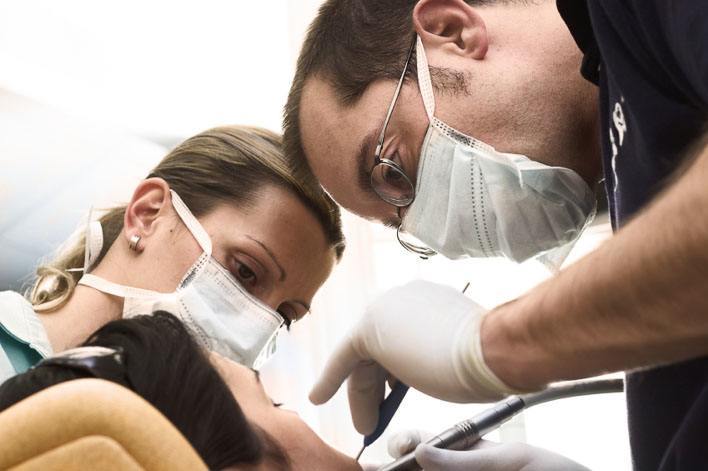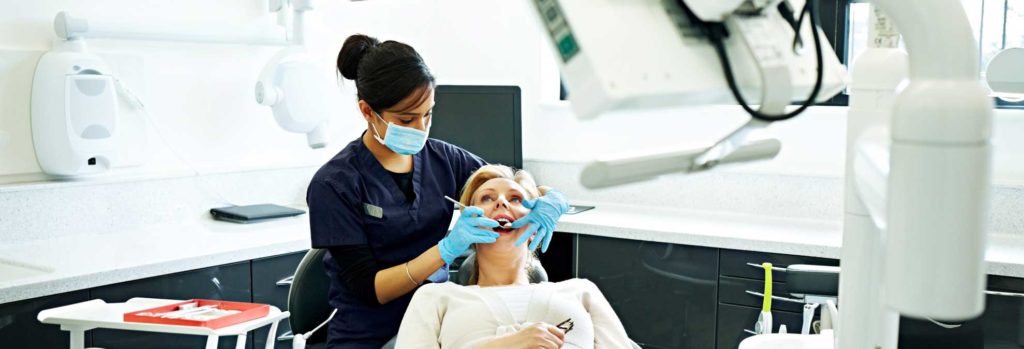There are no two ways about it – dental surgery isn’t what anybody would call particularly pleasant. On the plus side, things have come a long way over recent years and the vast majority of routine procedures are nowhere near as awful as they used to be. Procedures are generally carried out painlessly, techniques are so advanced that recovery times are minimal and in many instances, procedures of an extreme nature can be avoided entirely, by making minor corrections and adjustments.
Nevertheless, there will always be plenty of examples of dental procedures that result in stitches being required. Stitches are not particularly pleasant administered to any part of the body but can be even more uncomfortable and irritating in the mouth. For the most part, stitches need not necessarily cause any severe pain or discomfort, but can nonetheless be problematic – particularly in the initial days following the surgical procedure.
Generally speaking, it is becoming rarer all the time for traditional stitches to be used, which have to be removed manually. Instead, the stitches that tend to be used in dental surgery dissolve and disappear on their own, with no manual removal required. This is of course preferable for reasons of both convenience and comfort.
But regardless of the type of stitches used to close the wound, there are certain key guidelines to follow when it comes to caring for them appropriately. Simply proceed in accordance with the following expert instructions and you will probably find the entire recovery process is considerably shorter and less unpleasant than you expected:
Use an Approved Rinse
First of all, it’s worth remembering that even the very best mouthwash on the market may not necessarily be suitable for use following a dental procedure. There are certain rinses available from approved manufacturers which are designed specifically for use while wounds are healing within the mouth. These products differ from conventional mouthwash in a number of ways – one of which being the way they get to work with an extremely powerful, perhaps even antibacterial clean action. As you will not be able to physically brush the treated area for some time, it pays to invest in a high-quality mouthwash that is suitable for the job. Just ensure that the product you use is the very best mouthwash for after dental surgery, rather than a generic mouthwash.
Try Not to Play with Them!
During the healing process, it is almost impossible to resist the urge to constantly play with any stitches that may be in your mouth. Using your tongue and perhaps even your fingers, you will probably want to keep constant tabs on what’s happening, in order to see whether things are healing and how it’s all progressing. The only problem being that every time you poke at it with your tongue or fingers, you are actually hindering the recovery process. Along with the physical harm that can be caused by prodding and poking, your tongue and especially your fingers are coated with exactly the kinds of germs and bacteria that could trigger an infection. As difficult as it may be, the best advice is to leave everything alone!
Eat Carefully
When it comes to eating, common sense really should be the only guide you need. For obvious reasons, it’s a good idea to stay away from anything that is particularly sharp, hard or likely to cause any kind of damage to the affected area. Likewise, you might want to avoid anything that is particularly sticky, or is likely to leave the kind of debris all over the wound and the stitches that may prove difficult to remove. While this may take much of the fun out of eating and prevent you from eating your favourite foods for a while, it’s worth bearing in mind that it is only temporary and will be worth the effort when everything is better. Be sensible and think twice about everything you put in your mouth.

Avoid Anything Too Hot
Likewise, you should think about staying away from anything that is too hot – including hot drinks. Your mouth is extremely sensitive and is prone to becoming burned and sore at the best of times. In instances where the inside of your mouth is already sore, you are (quite literally) playing with fire if you eat or drink anything that is too hot. By contrast, eating foods that are rather on the cold side can bring welcome relief, should you experience any pain or discomfort. It’s not necessarily a good idea to go smothering your stitches in chocolate ice cream, but some fresh, cold water swilled around the affected area could help calm and cool it for a while.
Use OTC Painkillers
Last but not least, dentists and health professionals in general usually recommend staying away from painkillers, unless they are absolutely necessary. Nevertheless, there are plenty of painkillers and pain killing products that are specifically designed to help reduce oral discomfort and even actively reduce inflammation. Your best bet is to speak to your dentist at the time of the procedure, asking for their own recommendations as to which painkillers you should and should not use. Alternatively, speak to a pharmacist for advice on the various products available.
If in doubt…
In most instances, the recovery process from the vast majority of everyday dental procedures should be relatively painless. A certain amount of discomfort may be inevitable, but you should never find yourself in a situation where you are finding it difficult to cope. If you do, this could mean that there is something wrong and therefore should be brought to the attention of the professionals immediately.
If in doubt, get back in touch with your dentist or doctor at the earliest possible instance and arrange a check-up.
